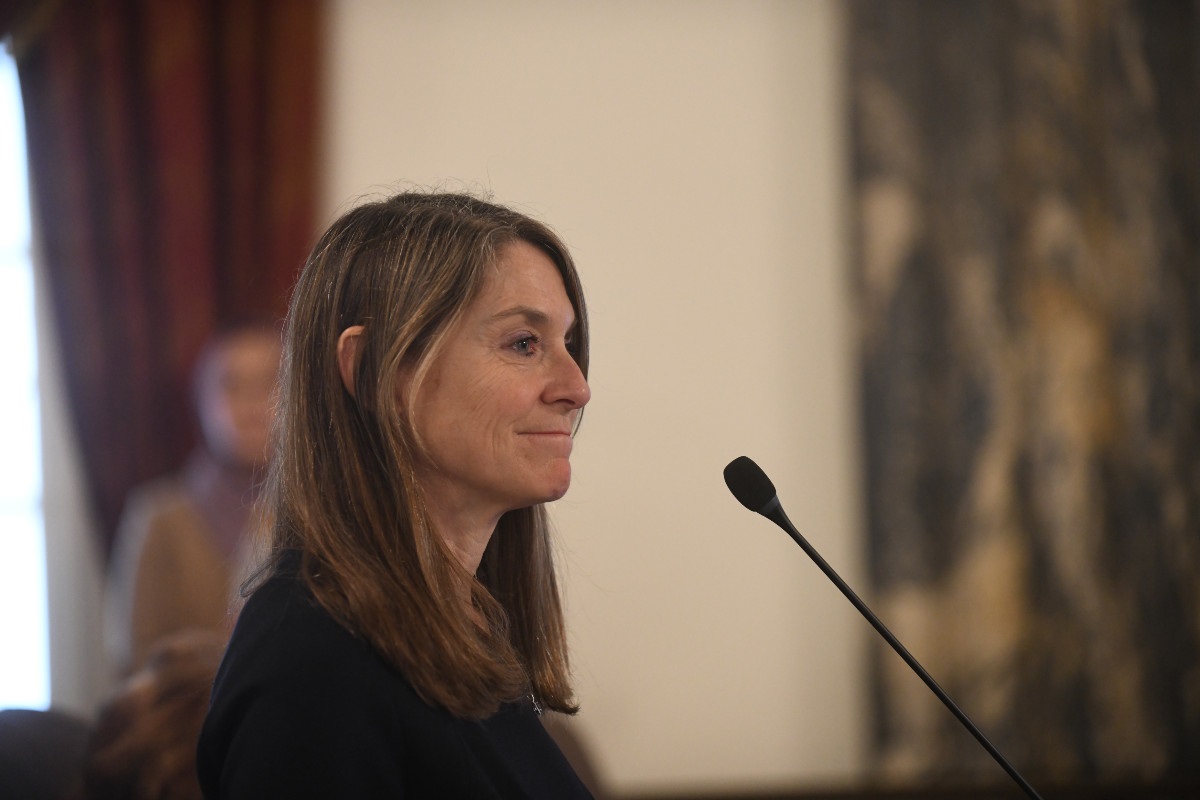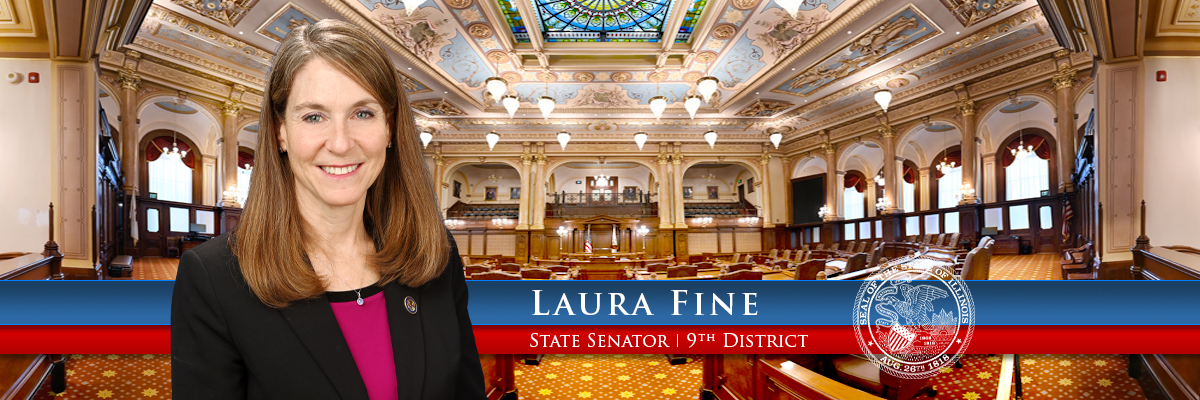- Details
- Category: Press Releases
 SPRINGFIELD — Nine local school districts are receiving state library grants totaling over $25,000. These dollars will provide resources to libraries through books, e-books, audiobooks, periodicals, multilingual materials, technology and programs.
SPRINGFIELD — Nine local school districts are receiving state library grants totaling over $25,000. These dollars will provide resources to libraries through books, e-books, audiobooks, periodicals, multilingual materials, technology and programs.
“By investing in our local school libraries, we are investing in the foundations of education for every student,” said Fine (D-Glenview). “Libraries are essential in providing access to materials and skills that will help them along their academic journey."
The following school districts in Fine’s district received a total of $25,842 through the School District Library Grant Program:
- Community Consolidated School District 65 - $5,365
- Evanston Township High School District 202 - $3,171
- Glenbrook High School District 225 - $4,419
- Glenview Community Consolidated School District 34 - $3,676
- Kenilworth School District 38 - $850
- Avoca School District 37 - $850
- Wilmette School District 39 - $2,728
- New Trier Township High School District 203 - $3,303
- Winnetka School District 36 - $1,476
The grants, awarded once every fiscal year, will support school library services for over 1 million students enrolled in kindergarten through 12th grade across the state.
“Libraries are a cornerstone in our communities and schools,” said Fine. “It is important to ensure that students have access to quality programs and resources.”
For a full list of libraries that received funding, visit the Secretary of State’s website.
- Details
- Category: News
 SPRINGFIELD – Building on her previous legislation, a new law from State Senator Laura Fine strengthens consumer protections for the purchase of hearing aids.
SPRINGFIELD – Building on her previous legislation, a new law from State Senator Laura Fine strengthens consumer protections for the purchase of hearing aids.
“Hearing aids are important tools to help those with hearing loss communicate in ways they are most comfortable with,” said Fine (D-Glenview). “This legislation will ensure consumers have the protection of a 30-day return period so if a hearing aid is not supporting their communication needs, they will be able to return them for an alternative.”
Earlier this year, Senator Fine passed Senate Bill 1721 which required all hearing instruments and hearing aids to be dispensed or sold in accordance with the Food and Drug Administration and the Federal Trade Commission's regulations. This law also established the evaluation standards for a person seeking a hearing aid, and it permits the waiver of a prescription for a hearing aid if the individual is over 18.
Expanding on these protections, Senate Bill 767 allows customers to return purchased hearing aids for a refund within 30 days. This will give consumers more confidence when taking the intimidating step to purchase a hearing aid, as they will be able to return or exchange it if there are issues with the device or it does not suit their needs.
“Like all technology, some hearing aids may be faulty and can be easily replaced by manufacturers,” said Fine. “We need to have return periods in place so consumers are able to do so, and this law will give consumers more peace of mind when making this significant purchase.”
Senate Bill 767 was signed into law Friday and goes into effect Jan. 1, 2024.
- Details
- Category: Press Releases
SPRINGFIELD – State Senator Laura Fine supported legislation to extend the number of business days Cook County taxpayers have to file a property tax appeal, standardizing the length of time taxpayers have to work through the appeals process.
“The property tax appeal process is often daunting for homeowners, and the current deadline established based on calendar days results in inequities among taxpayers and townships,” said Fine (D-Glenview). “This legislation will make the appeals process fairer for Cook County homeowners, giving them more time to attend workshops to help with this process, file and defend their appeal.”
The Cook County Assessor’s filing deadlines for taxpayer appeals can vary from year to year. This year, the assessor’s office established a deadline of 30 calendar days for filing complaints. However, the available business days for filing were different in each township after factoring in weekends and holidays, varying from 19 to 22 business days.
Senate Bill 1988 would establish uniform filing periods to ensure homeowners have adequate time to address their complaints to the assessor. The measure requires the Cook County Assessor to accept appeals for at least 30 business days after the date the increased property assessment was mailed or published on the assessor’s website.
Senate Bill 1988 heads to the governor for final consideration.
- Details
- Category: News
Over the past few days, I have participated in local vigils with thousands of people, and I have tried to digest the unimaginable horrors inflicted upon innocent victims. As a wife, mother, and member of the Jewish community, my heart breaks, as I cannot comprehend the full scope of atrocities of what has unfolded. Hamas terrorists have intentionally and brutally targeted women, children, and the elderly in their unspeakable attacks and are now holding Israelis, Americans, and others hostage. The futures and dreams of hundreds of people will never be realized because of these senseless acts of terrorism. I pray for the victims of these heinous acts and their families, and I send strength to every human being whose life has been upended by these unthinkable acts. Every elected official must unequivocally condemn these atrocious acts of terrorism for we can't live in a society where murdering innocent civilians is tolerated or justified in any way. I stand with Israel.
More Articles …
- Fine’s law requires insurance to cover annual mental health visits
- Senator Fine applauds Supreme Court decision to uphold assault weapons ban
- Fine, Gong-Gershowitz initiative to reduce single-use plastic foodware and styrofoam becomes law
- Fine initiative supporting victims of human rights violations becomes law
Page 21 of 77







